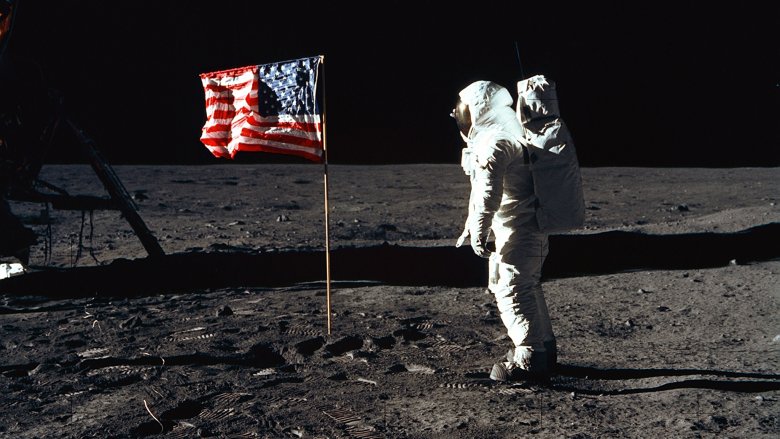Nixon's Secret Plan If The Moon Landing Failed
On September 12, 1962, President John F. Kennedy injected rocket fuel into the American imagination when he declared, "We choose to go to the moon in this decade ... not because [it is] easy, but because [it is] hard." Of course, "hard" didn't capture the half of it.
Traveling to outer space, let alone landing on the moon, was a highly risky undertaking. As author Andrew Chaikin explained in an interview, the Apollo 11 Saturn V rocket that brought Buzz Aldrin and Neil Armstrong to the moon in 1969 had "enough chemical energy to be the equivalent of a small atomic bomb." Getting in and out of earth's orbit was dangerous, as was entering the moon's orbit. Simply getting off the ground could be enormously perilous. A Space.com article recounts how the 1967 test launch of the Apollo 1 rocket ended tragically when a fire broke out, killing all three astronauts on board.
President Kennedy never got the chance to weigh such dangers. He was assassinated long before his dreams of galactic grandeur came true. Instead, his former political arch-rival, Richard Nixon, completed the mission. Though he only had a tiny role in the planning and execution, Tricky Dick was hellbent on ensuring that, as an article on History put it, "Apollo 11's success would be read by America and the world as the success of his presidency." He insisted on holding "a pre-launch Presidential reception separate from any NASA events" and was dead-set on boarding the recovery carrier after the mission.
But even an Oval Office Pinocchio like Nixon didn't have strong enough strings to pull a rocket to the moon and back without risks, so he needed a contingency plan. As another article on Space.com describes, if for some reason the the lunar module couldn't lift off from the moon to make the return trip to Earth, Nixon would have contacted Aldrin and Armstrong's wives before addressing the country publicly. Then, according to the memo containing Nixon's contingency plans, "after the president's statement, at the point when NASA ends communications with the men," the doomed astronauts' final sendoff would have taken the form of a public ceremony similar to a burial at sea.
Nixon's contingency speech, penned by his speechwriter William Safire, sat in obscurity at the National Archives until 1999. With aching eloquence it states, "Fate has ordained that the men who went to the moon to explore in peace will stay on the moon to rest in peace. These brave men, Neil Armstrong and Edwin Aldrin, know that there is no hope for their recovery. But they also know that there is hope for mankind in their sacrifice." Thankfully, those brave men were ordained to make a giant leap for mankind instead.
